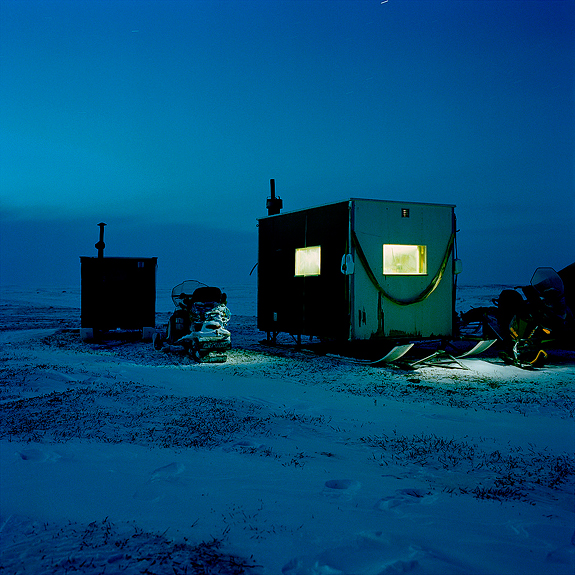
Since 2005, I have been traveling regularly to Máze, a small Sámi village located at the highest point of the European map, far above the Arctic Circle, in Norwegian Lapland. There, I met quiet people, sometimes melancholic, captivating, who are very proud of their village and territory. They often have binoculars at hand, even in their homes, to gaze at these beautiful landscapes.
I have photographed Sámi people, houses, land and reindeer that were almost not here today. They barely escaped being flooded by the waters of a hydroelectric dam project that the Norwegian government planned in the early 1970’s and thanks to Sámi people’s protests and resistance was fortunately aborted. But I have also photographed a reality that will undoubtedly transform in the coming century, due to global warming and cultural integration.
To me, Máze is an ambivalent symbol of resistance and helplessness. Pride as well as suspicion, solitude and great beauty prevail there. In the most beautiful tundra of the Arctic region, I tasted Ante’s and Ole Ailo’s favorite season, when days get longer and temperatures become milder. The perfect moment, when time doesn’t exist anymore and night is gone, when Sámi people immerse themselves in their favorite activities: fishing through ice holes in Lake Suolojávri and riding the snøskuter in the tundra. And all these hours spent with friends, family, outside on a reindeer skin, in a hytte or under a lávvu, talking, joiking, or lying down doing nothing, saying nothing. Just being.
— Céline Clanet, Paris, France
